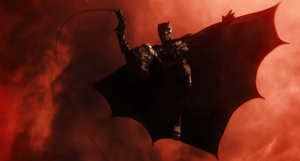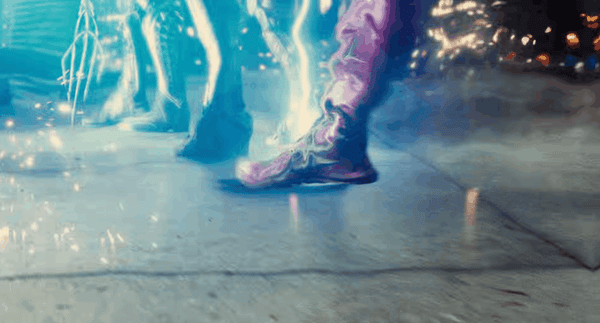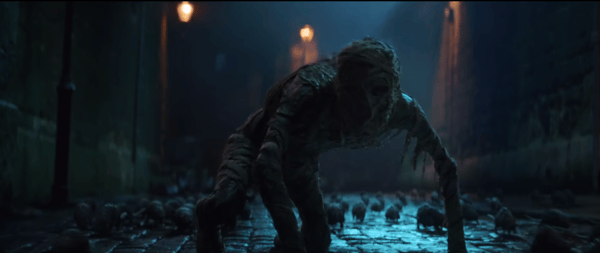
It's not technically anybody's fault that corporate-sponsored escapism has become a team sport in 2017. It's just what happens when a sub-demographic like the Xillennials (that's the folks in their mid-30s with living memory of the 1980s) were raised by aggressive, cruel marketing campaigns.
Sega against Nintendo. Boys against girls. Kids against their parents.
Now we have a half-dozen movie franchise shared universe vehicles to side with or against. While Marvel's MCU has succeeded up to this point, the Warner Bros. and Universal copycats are dying on the vine.
How'd they botch it...?
Why does the DCEU stumble?
Short answer: it tried too hard to mimic Christopher Nolan's ultra-practical genre-deconstructionist perspective.
The Warner Bros. producers making the DC Extended Universe films following The Dark Knight Trilogy noticed the billions of dollars being made and decided no course-correction away from dead-seriousness was required. Audiences showed up for Batman's Oscar-winning adventures in the vigilante moral quandary, why not for Superman in Man of Steel, and later in Batman V. Superman?
But this approach assumed two things:
- Imitating Christopher Nolan is simple
- Audiences that enjoyed a different approach in Batman Begins in 2005 would show up for a different approach to Superman in 2013
The realist-deconstruction of Batman's traditional rules and mythos meshed perfectly with Christopher Nolan's calculating attention to detail. The man loves his "musts" and "must-nots" in storytelling. So does Batman, the character, as audiences know him. Nolan's approach was inspired in 2005 and 2008, when that audience perhaps wasn't quite prepared to openly enjoy the childish rainbow-boxing matches that made them love comic books in the first place.
As soon as The Avengers landed though, and the filmgoing market revealed it was comfortably living that dream, observing beloved characters brought to life PRECISELY as imagined in the comic books, Zack Snyder's deconstructionist teardown in Batman V. Superman wasn't en vogue with what the audience wanted in shared universe storytelling.
How should a shared universe be structured?

Nobody will show up for your shared extra-sequel movies if there's no recognizable purpose or structure. For instance, what are audiences meant to expect from the Justice League movie?
A shared universe lives and dies by its tweaking on audience's expectations. What do the filmmakers know the AUDIENCE knows about what they're seeing?
Based on that, do they adhere to loyalty to pre-existing knowledge? Or do they veer away for a playful surprise?
This is how the DCEU has stumbled. They've miscalculated which audience expectation to steer into, and which to play with. Instead of making Superman an unironic embodiment of correctness, they've played with it, and made him a wearied, uncertain warrior. Instead of making Batman a calculating detective with an elevated code of ethics, they made him a vigilante driven to murder by family tragedy.
Those descriptions betray core tenants of the characters, as audience expect them.
The same audience looks to the next theater down the row and notice Captain America being righteous and Black Panther being noble in all their brazen regalia. The audience has images of these characters pre-ingrained in their minds, thanks to a decade of aggressive marketing.
And the DC shared universe has flipped off the audience's pre-conceived notions and childhood passions for the characters. This install-base is their million-strong word-of-mouth marketing department. In pursuit of making Batman a more modern character to folks in the year 2016, they cast him as a murderer.
The Dark Universe has no objective.

I skimmed over the trailer for 2017's The Mummy, starring Tom Cruise, for any image of the mummy. It was hard! I found one though.
The trailer primarily featured guns and fireballs in a modern desert setting with human-looking jerks in khaki cargo pants riding planes between non-American cities. What's this have to do with the recognizable legacy of The Mummy as a film franchise?
Instead, The Mummy is afraid of its own concept. All of Universal's Dark Universe films appear to be, which is why they've cast gigantic movie stars to play aimless monsters who might one day have a terrifying battle. But in case nobody is certain if they want to see a movie about the remarkable travels of Dr. Jekyll and Mr. Hyde, have an Oscar winner play the character. In case audiences can't see the point of making a movie where the Invisible Man meets the Bride of Frankenstein, cast Johnny Depp and Angelina Jolie.
Never mind their salaries, we'll assume folks from both the shared universe camp and the movie-star loving camp will show up for one picture. Put all the eggs in that basket, it's a guaranteed cross-over hit, not a lowest-common denominator imitation that appeals to no conclusive demographic.
It'd be embarrassing to make an unpredictable movie franchise that deftly plays with the audience's expectations.
A shared universe is little more than a marketing exercise if creators don't give the respect the audience.

